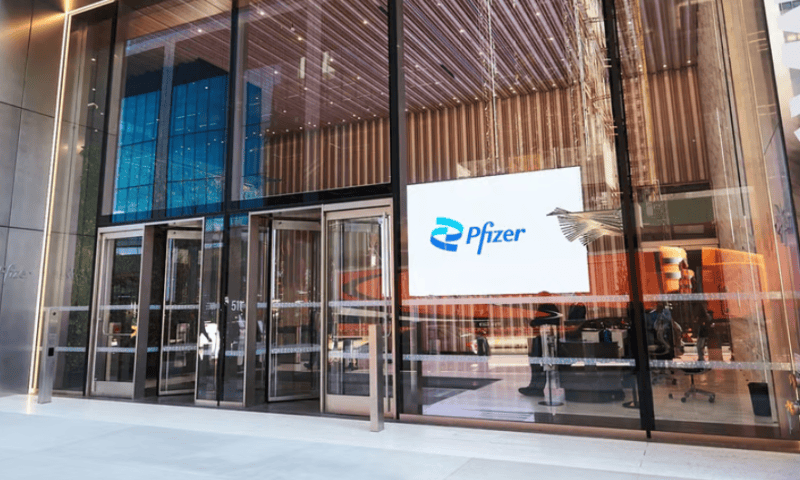Pfizer just swallowed a $43 billion antibody-drug conjugate (ADC) company and still isn’t full. Hours after Pfizer closed the Seagen buyout, Nona Biosciences put out news that the Big Pharma has committed $53 million in upfront and near-term payments for rights to its mesothelin-targeted ADC.
The deal with Nona gives Pfizer an exclusive global license to the ADC, dubbed HBM9033, a drug candidate that received FDA clearance for testing in humans earlier this year. Harbor BioMed, Nona’s parent company, created the asset in collaboration with MediLink Therapeutics, pooling technologies to link an anti-mesothelin antibody to a novel topoisomerase inhibitor via a tumor-specific cleavable linker.
Pfizer, which is on the hook for up to $1.05 billion in milestones, has identified the candidate as an asset that can realize the potential of mesothelin as an ADC target. A mesothelin ADC candidate that Bayer developed with ImmunoGen and MorphoSys failed a pivotal trial in mesothelioma patients in 2017.
Bayer remained interested in the target, inking and then axing a CAR-T pact with Atara Biotherapeutics, and other companies have kept in the hunt across a range of modalities. The activity reflects evidence that mesothelin is overexpressed in multiple tumor types, including mesothelioma and cancers of the ovary, lung, breast and pancreas.
The deal further strengthens Pfizer’s position in a modality that CEO Albert Bourla called “one of the hottest” areas of business development in recent months on a call with investors to discuss the closure of the Seagen deal. “Everybody is looking for an ADC and actually the prices that we’ve seen being paid for ADCs are way, way higher than what we were able to get [Seagen for],” Bourla said.
While Massachusetts-based Nona put out news of the deal, Harbor, a company that mostly has offices in China, is behind the project. Harbor set up Nona as a wholly owned subsidiary last year and went on to receive FDA clearance to study.

